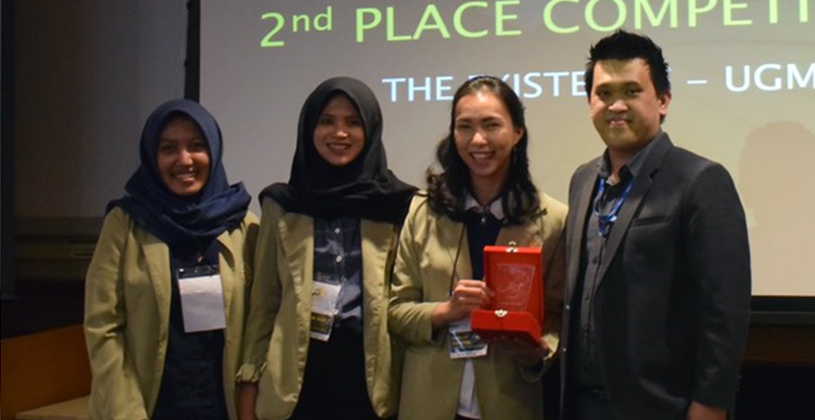FEB UGM Students Won 2nd place in The 18th ATV Audit Competition at Universitas Indonesia
- Details
- Written by Herlin
- Category: Achievement
- Hits: 2001

Two student team "The Existence" and "Hore" from Undergraduate Program Faculty of Economics and Business UGM, had successfully won the First Runner Up (2nd Place) in The 18th ATV Audit Competition by SPA Faculty of Economics and Business Universitas Indonesia on November 27-28, 2018. The Existence team consisting Herlin Puspita Kuarso (Accounting 2015), Nadila Nurfairuz Amalina (Accounting 2015), and Zaskia Ulul Azmi (Accounting 2015). While Hore team consisting Made Lanang Ray Widyatmika (Accounting 2015), Phoa Jefrie Permana (Accounting-IUP 2015), dan Richie (Accounting 2015).
The 18th ATV Competition is the largest and oldest auditing competition in Indonesia. This was the 18th competition that is conducted under the ATV’s name. This year competition main theme was “Enlightening Auditor’s Paradigm in the New Era of Audit 4.0”. The final round was conducted at 28th November 2018 and it was participated by 8 teams that come from famous University in Indonesia.
The competition started in September 2018, all participants submitted their solution for 4 cases in the preliminary round. 15 teams were then selected to join the semifinal round in Depok, West Java (Universitas Indonesia). The 15 teams from throughout Indonesia participated were teams from Universitas Gadjah Mada, Universitas Surabaya, Universitas Atma Jaya Yogyakarta, Trisakti School of Management, BINUS University, Swiss German University, and Universitas Islam Bandung. In the semifinal, the teams done a written test and quizzes about financial accounting, advanced financial accounting, and auditing. The teams also made an audit planning strategy for PT Empat Huruf Indonesia (a fictitious company by KPMG Indonesia) in just 100 minutes and presented to the judges (partners and senior auditors of KPMG Indonesia).
In the final round, 8 teams proceed and challenged to do audit simulation and to find material misstatements due to error and fraud in revenue cycle in just 150 minutes. The teams presented the findings for 8 minutes in front of the judges from both partners and senior auditors of KPMG Indonesia. The final round then followed by question and answer session by the judges. Then, each team closed the session with an adjusted revenue balance to convince the judges with their techniques and its findings.
Source: Herlin Puspita Kuarso


